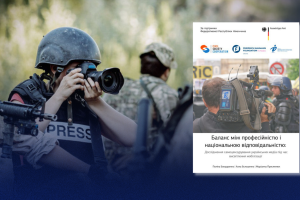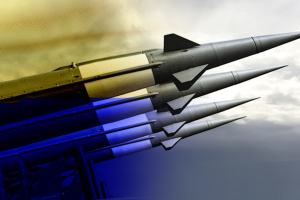Six months of the pandemic: What happened to the moods and electoral preferences of Ukrainians?
The survey was conducted by the sociological service of the Razumkov Center jointly with the Ilko Kucheriv Democratic Initiatives Foundation from July 3 to 9, 2020, via face-to-face interviews at the respondents’ place of residence. 2022 respondents aged over 18 y.o. were interviewed in all regions of Ukraine, except for Crimea and the occupied territories of Donetsk and Luhansk oblasts, according to a sample representative of the adult population according to the key socio-demographic indicators. The theoretical sampling error (excluding the design effect) does not exceed 2.3% with a probability of 0.95.
The survey was funded as part of the MATRA project of the Embassy of the Kingdom of the Netherlands.
A general assessment of the situation in the country
• 21.5% of respondents believe that the events in Ukraine show that country is moving in the right direction, 60.5% - that the events in the country signal that country is moving in the wrong direction. 20% of Ukrainians believe that Ukraine is able to overcome the existing problems and difficulties in the next few years. About 47% believe that Ukraine will be able to overcome the problems in the longer term, and 13.5% are pessimistic about Ukraine’s ability to overcome existing problems.
Trust in politicians and public figures. Assessment of the governmental activities.
Volodymyr Zelenskyi remains the politician with the highest level of trust (44%). However, the level of distrust toward him reached 49% so the balance of trust and distrust became negative. 39% of respondents trust Dmytro Razumkov, and 45% - do not. The level of credibility of other government officials is much lower. Thus, 14% trust Denys Shmygal, and 62% don’t; Arsen Avakov - 18% and 70%, respectively, Andriy Yermak - 9% and 48%, respectively, Iryna Venediktova - 9% and 49%, respectively. The balance of trust and distrust for opposition politicians - Sviatoslav Vakarchuk, Yulia Tymoshenko, Petro Poroshenko, Viktor Medvedchuk, and Yuriy Boyko is also negative and exceeds 40%.
- 40.5% of responders agree that President Volodymyr Zelenskyi is an honest and decent person. However, responders do not believe the same is true for most members of his political team. 9% believe that both the President and his political team are honest and decent, and 33% believe that neither the President nor the majority of the members of his political team are honest and decent people.
- 33% of Ukrainians believe that the current government is engaged in political repression, and 40% do not agree with this statement. The majority of those who voted for the oppositional parties during the last parliamentary elections believe that that government is conducting a repression campaign: this opinion is shared by 72% of supporters of “European Solidarity” (13.5% disagree), the electorate of Batkivshchyna - 42% and 29.5%, respectively; “Opposition Platform - For Life” - 41% and 31% respectively. Among those who voted for the “Servant of the People” party, 19% agree, and 55% deny the existence of political repressions in Ukraine.
Electoral priorities of Ukrainians
- If elections to the Verkhovna Rada of Ukraine were to take place in the near future, the Servant of the People political party would receive the greatest support (34% of those who would take part in the elections and decided with their choice). 19% are ready to vote for the Opposition Platform ˗ For Life, 15% for European Solidarity, and 8% - for Batkivshchyna.
- Other parties would not have overcome the 5% barrier, but the Power and Honor party would be able to get 4% of votes, the Civic Position - 3%. Oleg Lyashko’s Radical Party, the Voice, the Volodymyr Hroysman’s Ukrainian Strategy, the All-Ukrainian Union Svoboda, the Shariy Party, and the Opposition Bloc would have received about 2%.
- If the presidential election took place in the nearest future, Volodymyr Zelenskyi would get the most votes in the first round - 37% of those who would take part in the election and are decided with their vote. Yuriy Boyko would get 17% of the votes, Petro Poroshenko - 15%, Yulia Tymoshenko - 8%. 4.5% would vote for Ihor Smeshko, 3% for Anatoliy Hrytsenko, 2% for Oleh Lyashko and Roman Koshulynsky, and 1% for Oleksandr Vilkul.
- If the second round of the presidential election would take place between Zelenskyi and Boyko as candidates, 68% of those who would take part in the election and decided with their vote would vote for Zelenskyi and 32% - for Boyko. If Zelenskyi and Poroshenko went to the second round of the election, 71.5% of those who would take part in the elections and have decided with their vote would vote for Zelenskyi and 28.5% for Poroshenko.
Financing of political parties
- 54% of Ukrainians think that party leaders in Ukraine have to be responsible for the financing of party activities. Another 40% believe that ordinary members of these parties have to be responsible for the financing of parties, and 33% say that funding should come from the party supporters.
- Accoding to 15,5% of Ukrainians, the government should be responsible for a direct financing of the parties from the state budget, and only 12% say that they are willing to donate to political parties in Ukraine.
DYNAMICS OF PUBLIC OPINION
- In general, do you think that the events in Ukraine signal the move in the right direction or the wrong direction?

- In your opinion, is Ukraine able to overcome the existing problems and difficulties?









